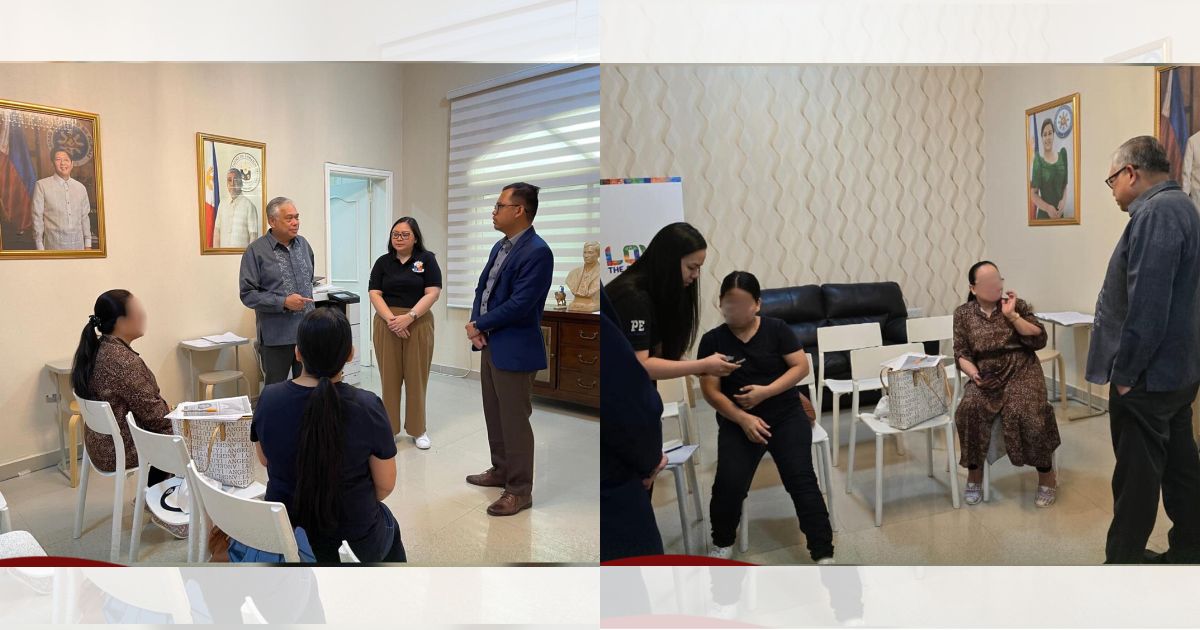With the UAE government’s amnesty program officially kicking off Sunday, September 1, Filipinos in the country now have an opportunity to address their visa and residency issues without incurring penalties.
The Philippine Embassy in Abu Dhabi and the Philippine Consulate General in Dubai have earlier released a joint statement encouraging Filipinos to take advantage of the program as early as they can to avoid unneccessary complications.
In this article, we will cover the key points of this amnesty scheme to help you navigate it with ease.
Eligibility and ineligibility
The two-month amnesty initiative, which will run until October 31, provides a lifeline for all whose residency or visit visas have already expired, including family members of sponsors, absconders, and foreigners born in the country who missed their registration window of four months.
However, if you have entered the UAE illegally, have violated residency regulations and have received absconding cases after September 1, 2024, and you are subject to ongoing deportation cases in the UAE or any GCC nation, you are not eligible. Additionally, you must first resolve any pending criminal, civil, or financial cases, such as debts, loans, and RERA disputes, before applying.
Fee exemptions
If you’re an eligible applicant, you are exempt from various fees, including those for canceling residency and tourist visas, exit passes, modifications of residency status, and administrative fines related to illegal stay or expired UAE national IDs. Fines for work contract issues are also exempted. If you will be able to settle your status, you will not face restrictions on returning to the UAE in the future, so long as you have the appropriate visa.
The application procedures
If you wish to stay in the UAE, you can access services like residency renewals or modification of your status with a valid visa. Online application is available through e-channels and approved typing centers, where you may submit your service request along with your valid passport and complete documentary requirements like your MOHRE-approved employment contract.
If you receive a notification to physically visit a designated fingerprinting center, you will have to, as it means your biometric records are needed. Do this in the emirate where your visa was issued, especially if you’re aged 15 and above.
In Dubai, 86 Amer Centers are available to assist with in-person applications. If your visa was issued in the Northern Emirates, your amnesty application can be made at ICP centers, which will operate daily throughout the amnesty period from 8am to 8pm.
On the other hand, if you plan to leave, you can also apply online. Prepare your passport and ticket, and apply for an electronic departure permit through smart channels. You will receive your permit immediately unless you need to visit GDRFA AL Awir Service Center in Dubai to complete your biometric records. Other emirates have GDRFA service centers that are also capable of capturing biometric fingerprints. If you have an Emirates ID, however, you may get your departure permits from any Amer Center, but take note that they collect minimal fees for their services.
It’s also important to keep in mind that departure permits are valid for 14 days from the date they are issued. If your permit expires after the amnesty period and you haven’t left, any previous penalties and fines will be enforced. However, if your permit expires before October 30, 2024, you can leave without facing any additional penalties.
Passport issues
Of course, you can go to the Consulate to avail of the amnesty. If you have the complete documentation, you will be served as a walk-in applicant.
Have you absconded from your employer and lost your passport? Check if it was turned over to the Consulate. If it’s not there, you need to apply for a Police Report or Lost Passport Certificate through Dubai Police’s website or mobile app. The police station with jurisdiction over the area where your visa was issued can also provide you with a Lost Passport Certificate.
Requirements for replacing lost passports include your personal appearance, photocopies of your lost passport, your Philippine Statistics Authority-issued birth certificate, a valid ID, an affidavit of loss from the Philippine missions, and a police report with English translation. You will be asked to pay AED 600 for your passport replacement, while an affidavit of loss document costs AED 100.
If your passport is expired and needs renewal, you should consult the Consulate’s website for specific requirements. It will take six to eight weeks for your new passport to be released. In case you cannot secure a renewed passport within the amnesty period, a Travel Document application is your alternative for urgent travel.
Travel document and repatriation assistance
In securing a Travel Document, you will have to accomplish an application form, furnish a copy of your lost passport, your latest visa copy, direct flight ticket to the Philippines, four recent passport-sized photos, affidavit of loss from the Consulate, and a Police Report with English translation. If you’re a minor, you will be needing additional documents such as your birth certificate or report of birth as well as any parental identification, including report of marriage or PSA marriage certificate of your parents, and their visa and passport copies.
Further, you may visit the Consulate to benefit from their repatriation assistance. Fill out the application forms for evaluation by the Migrant Workers Office Dubai. If you have any pending cases, you may also avail of their free legal consultations every Wednesday. Send an e-mail to [email protected] to schedule an appointment.
You may also contact the Philippine Embassy in Abu Dhabi at (+971) 50 8137836 and (+971) 50 4438003; and the PCG-Dubai at (+971) 4 220 7100, (+971) 56 417 7558 (WhatsApp only), and (+971) 56 501 5756 (assistance to Nationals) for any concerns or inquiries.
And whether you’re staying or leaving the UAE, if you’re eligible, you should act promptly to make the most of the amnesty program’s benefits.




